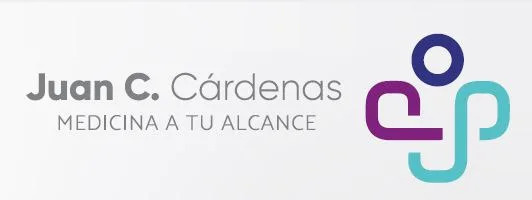Ecuador shows the way in eliminating poverty but will the plan work worldwide?
Is the United Nations’ goal of eradicating poverty by 2030 actually feasible? New research out of Ecuador says yes – if governments are willing to pay for it.
According to a United Nations University (UNU) – Merit study of Ecuador’s Human Development Bonus (Bono de Desarrollo Humano, or BDH), direct cash transfers have definitively improved social mobility, or the ability of individuals or households to move between social strata. And it has helped poor families climb out of poverty, especially when complemented by other economic-inclusion programs.
individuals or households to move between social strata. And it has helped poor families climb out of poverty, especially when complemented by other economic-inclusion programs.
Ecuador’s BDH is a cash transfer given to extremely poor families each month, as long as their children are regularly attending school and health clinics. Beginning in 2003, each beneficiary household has received $15 every month. The amount was increased to $30 in 2007, and $50 in 2013. In-coming Ecuadorian president Lenin Moreno says he will raise the amount to $100 after he takes office in May.
Ecuador’s different approach
Unlike similar programs in other Latin American countries, including Mexico’s Prospera and Brazil’s Bolsa Familia, where monitoring of student attendance and nutritional compliance is quite strict, in Ecuador conditionality is somewhat soft.
It’s well known that cash transfers positively impact access to quality health and education services, as evidence from 30 developing countries shows. They are also proven to improve labour supply and familial asset accumulation, strengthen social networks and stimulate local markets.
But the literature is scarce when it comes to the long-term effects of such transfers.

Poor Ecuadorian sign up to receive bonus.
Using administrative panel data collected over ten years, the UNU-Merit study analysed the determinants of social mobility in Ecuador on a multivariate welfare index, reflecting the importance of different dimensions of structural poverty conditions.
It sought to answer such critical macro-level questions, such as does more cash, with or without conditionality, actually increase the social mobility of the poor? And does an assured basic income establish the baseline security necessary for people to feel free to pursue their goals?
Preliminary results were released in a January 2017 working paper co-authored by Franziska Gassmann and myself. We showed that the BDH does have a positive long-term effect on individuals and families.
Payments have long-term positive impact
Between 2009 and 2014, households receiving the BDH increased their welfare index – meaning that their wealth grew, as did their ability to rise through the ranks of society, in both absolute and relative terms – by between 12 percent and 13.6 percent, compared to people who did not receive the cash transfer.
Our finding demonstrates that the BDH improves recipients’ well-being not just temporarily, but in the longer term, thereby fostering social mobility among Ecuador’s poorest sectors.
More money, fewer problems
Our study also showed that welfare increases in keeping with higher cash transfers. A 10 percent higher BDH transfer amount, or an extra $3 per month, correlates with a rise in welfare of 0.79 percent to 0.86 percent.
The improvement is more marked among households that received the Human Development Loan (Crédito de Desarrollo Humano, CDH), a variation of the BDH that pays a yearly amount of $600 aimed at promoting productive investments. Households that received this wealth accumulation-oriented transfer have a 4 percent to 4.2 percent higher welfare index than those that receive only the BDH.
For economists and policymakers, our research results should confirm that cash transfers must not be seen as merely a way to ensure the minimum level of food consumption, education and access to health for society’s poorest. Rather, they are a tool for fostering longer-term social mobility.
The finding that size matters is also noteworthy. The more money families receive, the better their outcomes.
Finally, social transfers such as the CDH that have the explicit objective of starting a business have an even stronger effect on absolute mobility. Thus, to enable social mobility, anti-poverty policies should be geared towards improving access to physical capital and income-generating activities (vocational training, for instance, and financial services).
Social safety net generates opportunity
These findings are consistent with the idea that social safety nets play a productive role in society. It also confirms our intuition about promoting productive capacities.
In this sense, the role of social transfers can and should be to overcome so-called “poverty traps” such as credit constraints, opportunity and transaction costs, and the non-optimal decision-making that can come from extreme scarcity.
To mitigate poverty traps, policy instruments should consider household composition (gender, for instance, and age) and economic vulnerabilities (such as disability and level of formal education, among other things). A cash transfer does not mean the same thing to everyone; it must be designed considering each household’s specific needs.
The study also confirms that governments must enact complementary policies if they hope to reduce social exclusion for society’s most vulnerable, those who struggle with more than just poverty. Laws promoting reproductive health, fostering gender equity and reducing opportunity gaps between ethnic groups or between urban and rural areas will give cash transfers like the BDH more bang for their buck.
The economic growth of developing nations is a necessary condition for poverty reduction, but it has never been sufficient. If correctly designed and complemented, cash transfers can have a transformative effect on society’s poorest members. They can effectively and efficiently smooth consumption, foster social mobility – and, possibly, eradicate global poverty.
_________________
Andrés Mideros Mora is a research fellow at United Nations University.


















